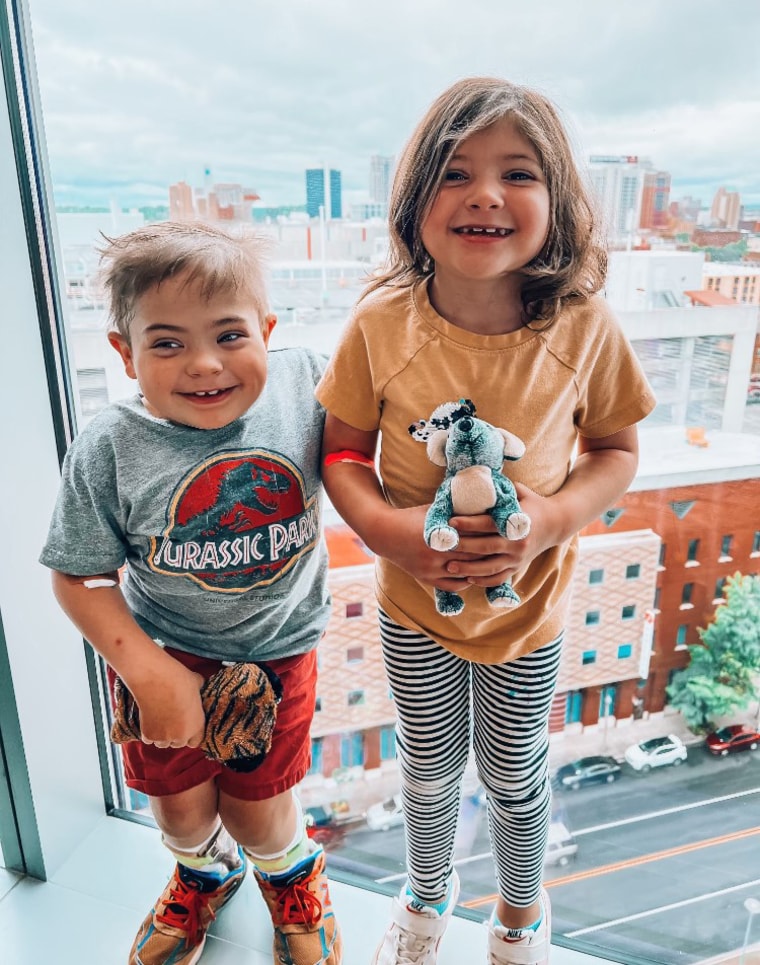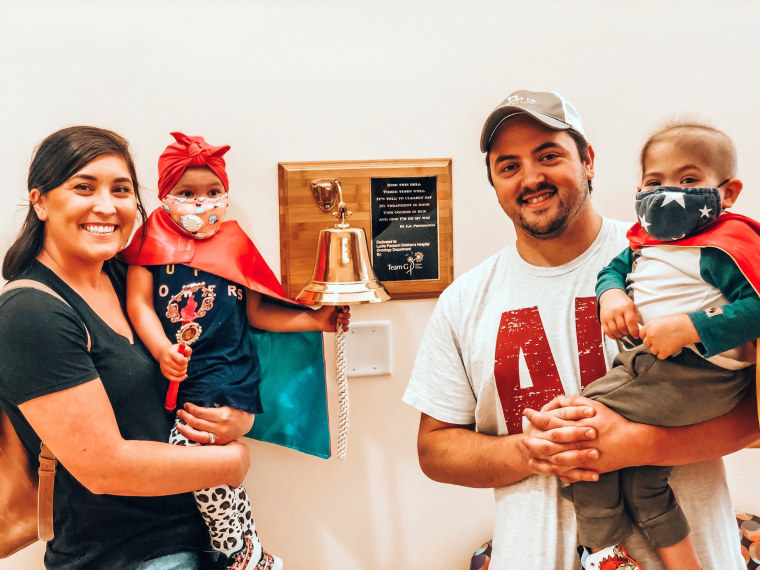Three children who have undergone kidney transplants in California will likely be spared from ever having to take anti-rejection medication, because of an innovative technique that eliminates the need for lifelong immunosuppression, ground-breaking new research suggests.
Scientists at Stanford Medicine detailed the cases Wednesday in the New England Journal of Medicine. All three children have an extremely rare genetic disease called Schimke immuno-osseous dysplasia, or SIOD, that often destroys a person’s ability to fight off infection and leads to kidney failure. In each case, a parent donated stem cells taken from bone marrow, as well as a kidney.
About three years after the transplants, the children have normal kidney and immune system function. The technique — called a dual immune/solid organ transplant — involves a stem cell transplant that trains the immune system not to reject a subsequent kidney donation. The protocol used at Stanford isn’t new, but its success is.
Though SIOD is so rare — estimated to affect just a few dozen children worldwide — experts in the field of kidney transplantation say the results seen in these kids holds tremendous promise for transplants in general.
“There is no organ transplant, whether it’s kidney, liver, pancreas, lung, heart, that doesn’t have the same long-term complications from the body’s very effective immune system,” said Dr. Amit Tevar, surgical director of the Kidney and Pancreas Transplant Program at the University of Pittsburgh Medical Center.
Coaxing the body away from rejecting a transplanted organ has always been an uphill battle, Tevar said. “The Holy Grail of transplantation is immune tolerance,” meaning that the body doesn’t view a donated organ as a threat worthy of attack.
“This is ground-breaking,” Tevar, who is not associated with the research, said of the new report.
An advance in kidney transplantation could have a far-reaching impact. Nearly 90,000 people in the U.S. are waiting for a new kidney, according to the United Network for Organ Sharing.
Dr. Hamid Rabb, medical director of the Johns Hopkins Kidney Transplant Program in Baltimore, called the research “exciting.”
“It would be amazing if there were techniques where one could get a kidney transplant and not have to use very strong medicines with side effects,” he said. “This opens up those new approaches.”
What’s more, it could eliminate the need for additional organ transplants in recipients. Donated organs generally only last a decade or two before succumbing to rejection and needing replacement.
But because of the immune tolerance achieved in these cases, “these kidneys are going to last forever,” said Dr. Alice Bertaina, a study author and associate professor of pediatrics at Stanford.
‘Back to life’
While organ transplants have revolutionized the field of medicine — allowing patients to live far longer than they would otherwise — they’ve come with a serious and potentially deadly threat of organ rejection.
Recipients are generally required to stay on drugs to suppress their immune system for as long as they have the donated organ. Those medications raise the risk for serious problems, such as high blood pressure, cancer and infections severe enough to require hospitalization.
Even though families with children who have had an organ transplant try to get back to normal childhood activities, they must always be aware of the risks for illness and infection, said Dr. Eliza Blanchette, a pediatric nephrologist at Children’s Hospital Colorado. “Many of them are always living with those worries.”
Patients are also subject to a potentially deadly reaction called graft-versus-host disease, which is when newly transplanted cells attack the recipient’s body.
These were risks Jessica and Kyle Davenport of Muscle Shoals, Alabama were willing to take when they took their two children — both born with SIOD — to Stanford for the treatment in 2019.
Kruz, who turns 9 next month, and his 7-year-old sister, Paizlee, are only the second set of siblings in the world documented with SIOD, Jessica Davenport said. The condition is a type of dwarfism that impacts multiple systems in the body. It’s generally marked by an inability to grow typically, kidney failure and a deficiency in T cells, which help the body fight off infections.

In 2019, the family traveled to California from their home in Alabama to undergo the long process of both stem cell and kidney transplantation. Jessica Davenport donated her bone marrow and one kidney to son Kruz, while Kyle Davenport donated his bone marrow and a kidney to daughter Paizlee.
The foursome were in the hospital for a year through both bone marrow and kidney donations. The process includes grueling rounds of chemotherapy and radiation for the children ahead of the organ transplants, plus the hours and risks of surgery for both parents.
“When you’re in it, you have your game face on,” Davenport said. “But when we look back, it’s like, I can’t believe we actually did that.”
A third child in the report has not been identified. Bertraina said the child, a girl, had been dependent on dialysis previously, which affected her quality of life.
Nearly two years after the surgery, “this patient has come back to life,” she said.
Reducing need for immunosuppression drugs
Five children with SIOD in other parts of the world previously underwent the dual immune/solid organ transplant. But four died, either from graft-versus-host-disease or the extreme toxicity of the medications needed to knock out the immune system ahead of transplantation.
The young patients at Stanford underwent a relatively similar process of chemotherapy, radiation and other immune-suppressing medications ahead of the stem cell transplant so their bodies would have a better chance of accepting the new cells.
But the Stanford doctors tweaked that regimen specifically for these vulnerable children, lowering the toxic effects. They also altered the harvested stem cells to rid them of the ability to cause graft-vs-host-disease before infusing them into the patients.
There are limitations to the procedure. Though the kids’ kidneys and immune systems are working well for now, these transplants are not a cure for SIOD. Both Kruz and Paizlee continue to have complications, including debilitating migraines and risks for stroke and other cardiovascular problems.
It’s unclear whether the new kidneys will last a lifetime.
“There are many other types of kidney diseases where the body is still producing factors to damage that kidney,” Rabb said. “Even though you don’t have immunosuppression, the original disease could recur.”
Future advancements based on these cases are likely to hinge on scientists’ ability to see if they can get the method to work for patients who have fully functioning T cells, and therefore a more robust immune system to overcome.
Still, the new research “gives us a lot of hints as to how this can be accomplished through future studies in people that do have normal T cell systems,” Tevar of UPMC said.
Bertaina and her team have begun to study this protocol in a variety of other children with kidney failure, including those whose bodies previously rejected their transplanted kidneys.
It is also possible, she said, that the approach could be used someday to reset the immune systems of people who have already received an organ transplant, reducing or eliminating their need for lifelong immunosuppression medication.
Fully functioning kidneys and immune systems are allowing Kruz and Paizlee Davenport to experience life in ways that were previously impossible.
“They actually get to go to birthday parties, to Thanksgiving and Christmas with our family,” Davenport said. “It brings so much joy to my heart to watch them actually get to be kids.”
Follow NBC HEALTH on Twitter & Facebook.

